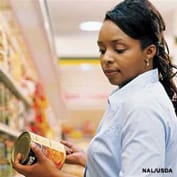May 18th, 2015
Expert Columns

By Diane MacEachern NABBW’s Going Green Associate We read food labels to avoid trans fats, sugar, and salt. Why not look for eco labels on the cleansers, personal care products, furniture, clothing, carpeting and home improvement goods we buy so we can shift our spending to those that best protect the planet? For example, the […]
Read More
August 27th, 2013
Expert Columns
Diane MacEachern Checks Out – and Reports On – The Green Clean Service Offered by the Maid Brigade Franchise By Diane MacEachern NABBW’s Going Green Expert Don\’t you love it when someone else cleans your house? I sure do – unless, of course, they “clean” it using products laden with nasty chemicals that leave my […]
Read More
November 20th, 2012
Going Green
America Recycles Day – What Are You Recycling? By Diane MacEachern NABBW’s Going Green Expert Today is America Recycles Day. Recycling is important, because it saves energy, reduces trash, and helps stop climate change. Here\’s what I recycle, and how I\’ve changed what I buy so I can buy less in the first place, reuse […]
Read More
September 22nd, 2012
Going Green
Help Your Plants Beat the Sweltering Heat With These Water Sense Tips By Diane MacEachern NABBW’s Going Green Expert This summer’s heat wave is expected to result in a serious spike in the amount of water being used outdoors this year. Late July and early August are usually when outdoor water use soars in most […]
Read More
April 26th, 2012
Going Green
Here\’s How You Can Afford to Spend 30% More on Organic Food By Diane MacEachern NABBW’s Going Green Expert Clean out your fridge. But before you toss all the expired or rotted food you find into the trash can, put it on your counter. Now do a rough calculation of how much that \’trash\’ cost […]
Read More
December 23rd, 2011
Going Green
Avoid Post-Christmas Clutter: 15 Things You Can Easily Recycle After Christmas By Diane MacEachern NABBW’s Going Green Expert Now\’s the time to think ahead to the day after Christmas — and all the stuff you may want or need to throw away. Instead of trashing it, here\’s a list of what you should easily be […]
Read More
July 8th, 2011
Going Green
Fracking: A Clear and Present Danger By Diane MacEachern NABBW’s Going Green Expert I don\’t like to exaggerate the impacts of the many environmental issues we face. But it\’s impossible to overstate how dangerous fracking is. Fracking stands for “hydraulic fracturing,” a highly polluting process for tapping underground pools of natural gas. It involves drilling […]
Read More
April 5th, 2011
Going Green
Is Your Environmental “Glass” Half Empty, or Half Full? By Diane MacEachern NABBW’s Going Green Expert Are you hopeful about the state of the world, or filled with despair? Japan\’s nuclear disaster is only the latest in a string of environmental catastrophes that might make anyone question whether we\’re doomed. I\’m normally a “glass half full” […]
Read More
February 12th, 2011
Going Green
Fill Your Heart with Organic Chocolate by Diane MacEachern NABBW’s Going Green Expert Any day is a good day to eat chocolate as far as I\’m concerned. But on no day is it so special as on Valentine\’s Day, when heart-shaped boxes full of cocoa-based delicacies can keep people (well, me) happy pretty much all […]
Read More
November 29th, 2010
Expert Columns
Why Climate Change Matters to Women by Diane MacEachern, NABBW’s Going Green Expert Solutions to climate change are usually discussed in terms of what\’s best for business or politics. But what about what\’s best for those who have the most to lose as climate change worsens: namely, women, especially those living in the poorest regions of […]
Read More


